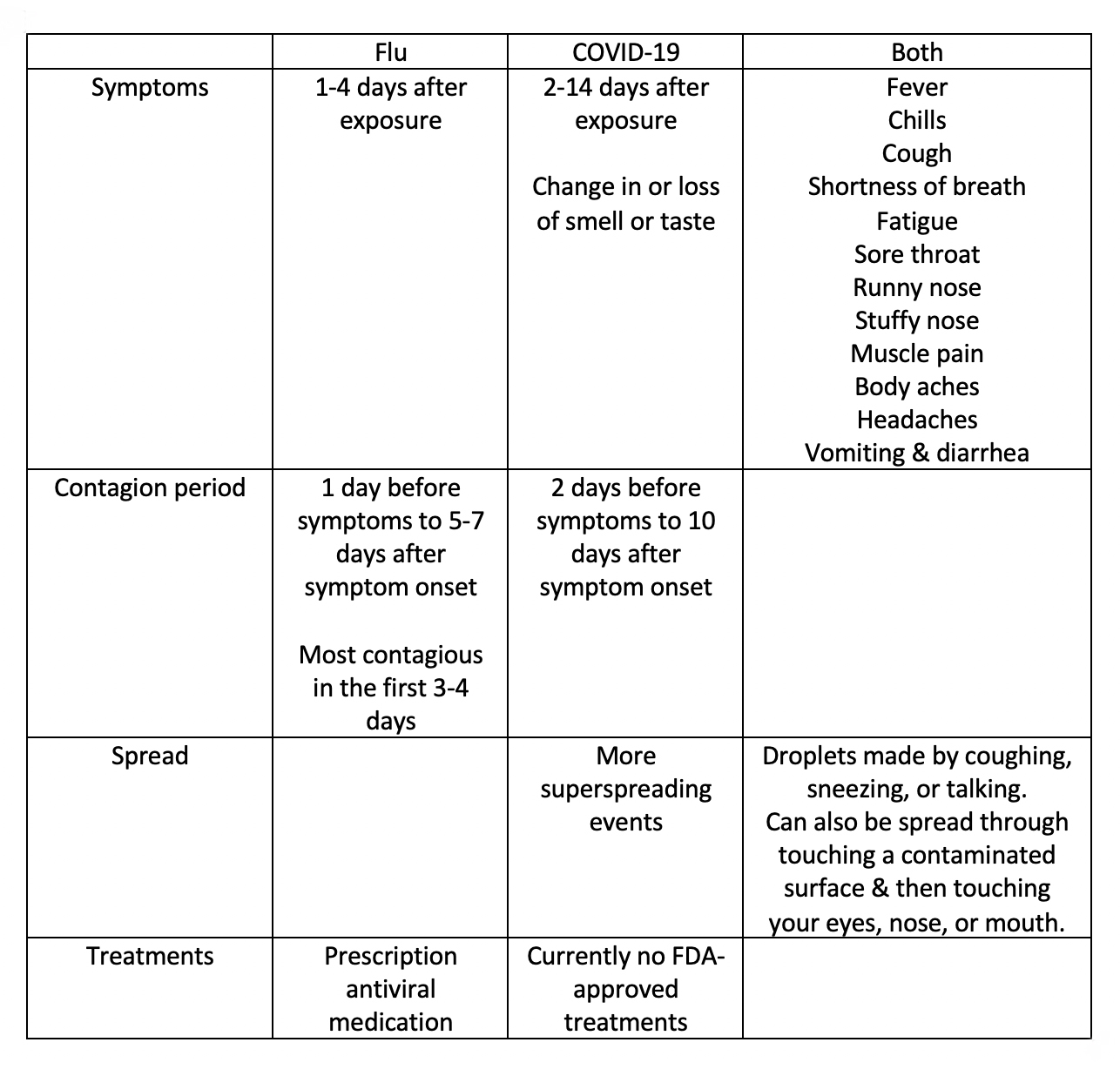Understanding the Differences between COVID-19 and Flu
October 6, 2020
While influenza (flu) and the coronavirus (COVID-19) have some similarities, it is important to remember that they are not the same disease, and each affects the body differently. Below are the answers to some frequently asked questions about the differences between the flu and COVID-19.
Q: How do the symptoms of COVID-19 compare to flu symptoms?
A: COVID-19 and seasonal flu share a variety of the same symptoms including: fever or feeling feverish, chills, cough, shortness of breath or difficulty breathing, fatigue (tiredness), sore throat, runny or stuffy nose, muscle pain, body aches, and headaches. Vomiting and diarrhea are also seen, but this is more common in children than adults. Some people diagnosed with COVID-19 have also experienced a change in or loss of smell or taste. This symptom is not associated with the flu.

Q: How soon after exposure is it possible for me to show symptoms?
A: People exposed to seasonal flu often express symptoms within 1 to 4 days. It takes longer for COVID-19 symptoms to appear, usually between 2 to 14 days, but with 5 days being the average time to symptom onset.
Q: If I am diagnosed with COVID-19 how long will I be contagious? How is this different from the flu?
A: Currently, the CDC defines the COVID-19 period of contagion for otherwise healthy people as 2 days before symptom onset to 10 days after symptom onset. If there have been no symptoms, then the period of contagion is 10 days after the first positive test. If a person is severely immunocompromised or was severely or critically sick, then the time after symptom onset is extended to 20 days.
A person who has the flu is the most contagious in the first 3 to 4 days of illness, but can be contagious from the day before symptom onset until 5 to 7 days after symptom onset.
Q: How are the flu and COVID-19 spread?
A: Both are primarily spread by droplets made when people cough, sneeze, or talk, which enter through exposed mucous membranes (mouth, eyes, and nose). They might also be spread if a person touches a surface or object that has the virus on it and then touches their own mouth, nose, or eyes, but this is not thought to be the main mode of transmission.
Among certain populations, COVID-19 is more contagious than the flu. There are also more superspreading events associated with COVID-19, which means that it quickly and easily spreads to a lot of people and results in continuous spreading among people as time progresses.
Q: Are there any treatments available?
A: Seasonal flu can be treated with prescription antiviral medication. There are currently no FDA-approved treatments for COVID-19, but studies are in progress.
GBMC Health Partners is pleased to offer drive-thru flu vaccinations for its primary care and specialty care patients at Farmhouse Hill on GBMC’s campus. This flu vaccine program is open to all patients of GBMC Health Partners over the age of 6 and will take place through November. Appointments are required.





